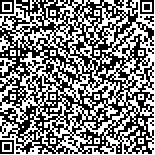孙长慧,杨铭,白玉龙.旋律语调治疗改善脑卒中后Broca失语的疗效观察[J].中华物理医学与康复杂志,2019,41(6):407-410
扫码阅读全文

|
| 旋律语调治疗改善脑卒中后Broca失语的疗效观察 |
|
| |
| DOI:DOI:10.3760/cma.j.issn.0254-1424.2019.06.002 |
| 中文关键词: 失语症 旋律语调疗法 言语治疗 语调和节奏 |
| 英文关键词: Aphasia Melody intonation therapy Speech therapy Intonation Rhythm |
| 基金项目:上海市残疾人康复科研项目(K2016005);上海市科委重点项目(17511107802) |
|
| 摘要点击次数: 7152 |
| 全文下载次数: 6868 |
| 中文摘要: |
| 目的 探讨旋律语调疗法(MIT)对脑卒中后Broca失语患者语言功能的影响。 方法 选取40例符合入组标准的脑卒中后Broca失语患者,按随机数字表法分为治疗组(20例)和对照组(20例)。治疗组进行改编的旋律语调治疗,对照组进行常规言语康复训练(包括口腔发音器官的训练、口语表达训练、文字表达训练、听理解训练等);均采用一对一的治疗方式,治疗时间每日1次,每次30 min,每周5 d,20次为1个疗程,连续治疗3个疗程。分别于入组时(治疗前)和治疗3个疗程后(治疗后),对2组患者进行西方失语成套测验(WAB)评估,对自发言语、听理解、复述、命名四项评估。最后通过统计学分析,考察治疗组的临床疗效。 结果 干预后,对照组和治疗组的各项语言评分值及失语商(AQ值)较组内治疗前均有不同程度改善(P<0.05);治疗组自发言语评分[(13.15±2.82)]、听理解评分[(8.42±1.61)分]、命名评分[(5.484±1.69)分]和失语商(AQ值)评分[(66.87±11.75)分]亦显著优于对照组[(10.55±3.61)、(7.92±2.19)、(4.32±1.89)分和(57.03±16.58)分],差异均有统计学意义(P<0.05)。 结论 以有语调和节奏的训练词库的MIT训练可以更有效地改善患者的言语功能及日常生活语言沟通能力。 |
| 英文摘要: |
| Objective To investigate the effect of melody intonation therapy on the language function of Chinese-speaking stroke survivors with Broca′s aphasia. Methods Forty patients with Broca′s aphasia after stroke were randomly divided into a treatment group and a control group, each of 20. The treatment group received melodic intonation training, while the control group received routine speech rehabilitation training including training of the vocal organs, oral expression, literal expression and listening comprehension 30 minutes a day, five days a week for 12 weeks. Before and after the treatment, the spontaneous speech, listening comprehension, retelling and naming of both groups were tested using the western aphasia battery. Results After the intervention, a significant increase was observed in the average aphasia quotient, speech, listening comprehension, retelling and naming scores of both groups. The average spontaneous speech, listening comprehension and naming scores and the aphasia quotient of the treatment group were then significantly better than those of the control group. Conclusion Melody intonation training and rhythm training can improve the speech and daily communication ability of stroke survivors effectively. |
|
查看全文
查看/发表评论 下载PDF阅读器 |
| 关闭 |
|
|
|